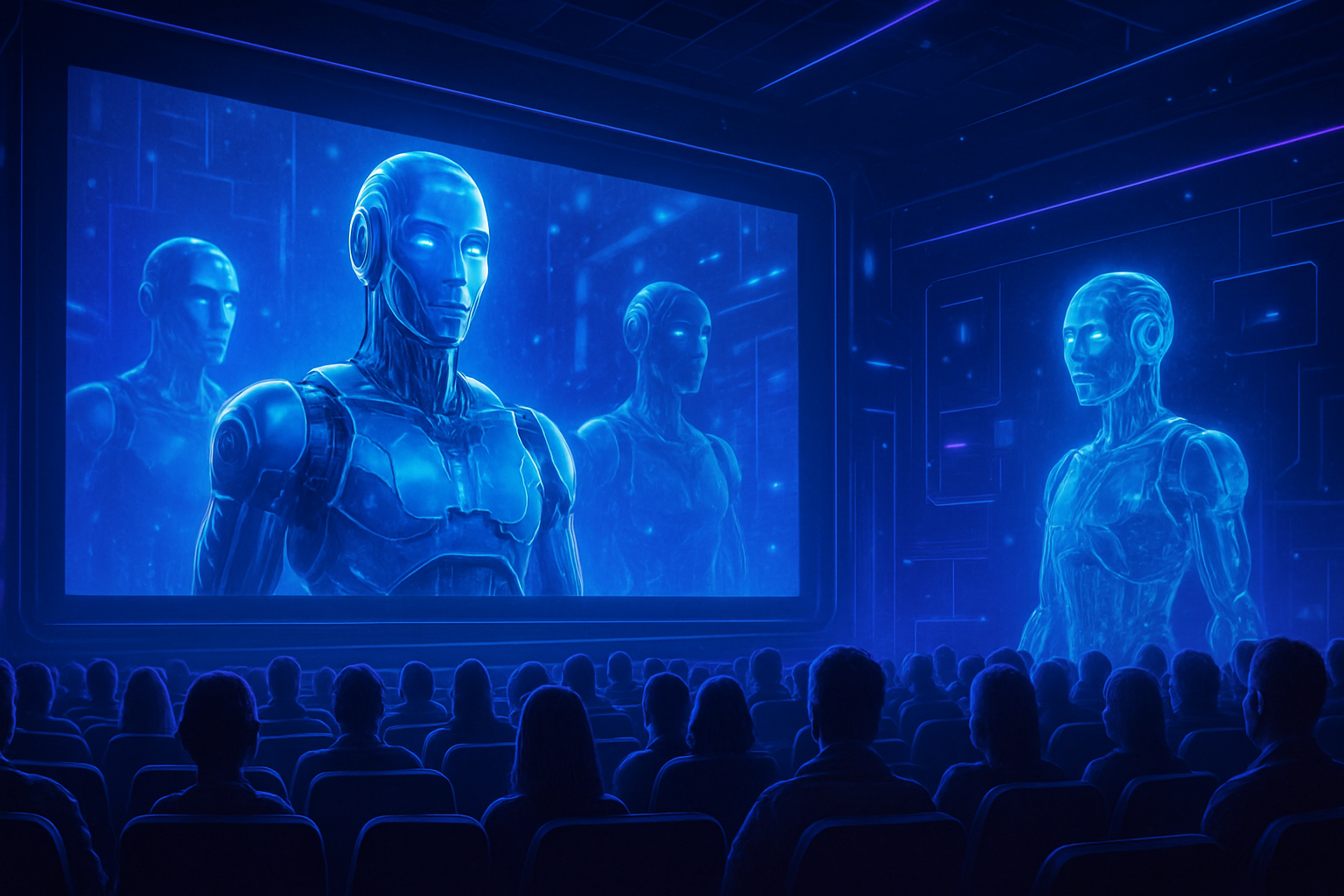Artificial intelligence now transcends the boundaries of technological innovation to impose itself on screens. As an emerging protagonist, it shapes cinematic narratives with a bewildering boldness. *Its manifestation, sometimes humanoid, sometimes abstract*, raises questions about ethical and artistic implications. At the heart of works like Tron. Ares and Dog 51, a revealing mutation of the perception of AI takes place. *Cinema redefines the contours of artificial intelligence*, giving it a new narrative voice that influences our understanding of reality. *A unique dynamic is created*, thus transforming the artistic landscape of the big screen.
Artificial intelligence in the cinematic world
The cinematic field is gradually becoming an experimental ground for artificial intelligence (AI). This increased presence alters the processes of creation, distribution, and even reception of films. Iconic works draw on revolutionary technological advances, integrating elements of AI both in the script and in special effects.
Diverse representations of AI in cinema
The representation of AI takes on various forms, oscillating between humanoids and abstract entities. Films like Tron. Ares, in which actors embody computer programs, illustrate a conventional vision. This iconic franchise, launched in 1982, illustrates the complex relationship between humans and the technologies they create.
In contrast, the work Dog 51 offers a more conceptual illustration of AI. Here, this technology transcends mere physical representation, focusing on its psychological and ethical implications. These films raise essential questions: how far can humans project their emotions onto non-human creations?
The impacts of AI on film production
In film production, AI participates in writing scripts, creating visual effects, and even editing. Companies leverage these tools to optimize their output and reduce costs. Film studios are turning to increased automation, allowing for unprecedented efficiency.
Directors take advantage of these technologies to create visually stunning works. Indeed, AI can analyze thousands of images and propose creative solutions that human teams would take months to realize. This phenomenon also questions the notion of creativity and uniqueness in cinema.
The ethical challenges of AI in the film industry
As AI becomes ubiquitous, ethical concerns emerge. The authenticity and intellectual property of works created with AI spark heated debates. Experts and artists wonder: how far does imitation go, and when does AI become a true creator?
Another concerning aspect also relates to the representation of cultural and social diversities through these technologies. With a risk of reinforced stereotypes, it becomes essential to ensure that works do not solely reflect the biases of the data on which they are based. Films must retain their ability to question, while not merely reproducing existing representational models.
The future of AI on the big screen
Projections about the future of AI in cinema herald an unprecedented revolution. Experts predict an increasing autonomy of these technologies, capable of generating scripts completely independently. Thus, the incursion of AI into science fiction narratives could become a reality with films entirely designed by algorithms.
Initiatives are already underway to explore these possibilities. Articles are analyzing, for instance, the future of generative artificial intelligence, questioning its future role in the film industry. Other findings highlight the importance of regulating these tools to preserve fundamental human values at the heart of cinematic art.
Economic impact of AI in the film industry
The economic impact of AI on cinema is also to be considered. Companies like Nvidia are positioning themselves as economic pillars in this constantly evolving sector. Their ability to provide advanced technologies for cinematic creation could radically alter the balance of power in the industry, favoring the emergence of new players eager to exploit these innovations.
The AI’s ability to eliminate unwanted content, as demonstrated by Spotify in its fight against titles generated by AI, illustrates the need for rigorous management of digital content. This vigilance is crucial to maintain the integrity of the cinematic work in front of a technology capable, at times, of both creating and destroying.
Debates on the role that AI should occupy in cinematic art continue to grow. How will traditional actors adapt to this new reality? The questions remain open and invite deep reflection on the direction that the big screen will take in the era of artificial intelligences.
Frequently asked questions
What is the impact of artificial intelligence on modern cinema?
Artificial intelligence is revolutionizing cinema by optimizing production processes, creating advanced special effects, and enhancing storytelling through data analysis and machine learning algorithms to identify audience preferences.
How do films represent artificial intelligence?
Films depict artificial intelligence in various ways, ranging from humanoid characters to simple voiceovers, reflecting the fears and promises associated with this technology in an artistic and narrative manner.
What are some recent films that incorporate artificial intelligence as a main theme?
Films like “Tron. Ares” and “Dog 51” explore artificial intelligence as a central character, highlighting its influence on the plot and the dynamics of human relationships.
How is artificial intelligence used in film production?
Artificial intelligence is used to automate certain tasks, analyze scripts, create digital characters, optimize editing, and even predict a film’s success based on historical data.
What are the ethical challenges associated with the use of artificial intelligence in cinema?
The ethical challenges include biased representation of AI characters, copyright issues related to AI-generated creations, and the implications of job loss for industry professionals.
What are the performances of actors using artificial intelligence in cinema?
Some films use digitally generated AI actors, offering a new dimension to performances, but also raising questions about authenticity and emotional connection with the audience.
How do experts envision the future of artificial intelligence in cinema?
Experts foresee an increasing integration of artificial intelligence in storytelling, production, and distribution, with films becoming increasingly interactive and personalized according to viewer preferences.






